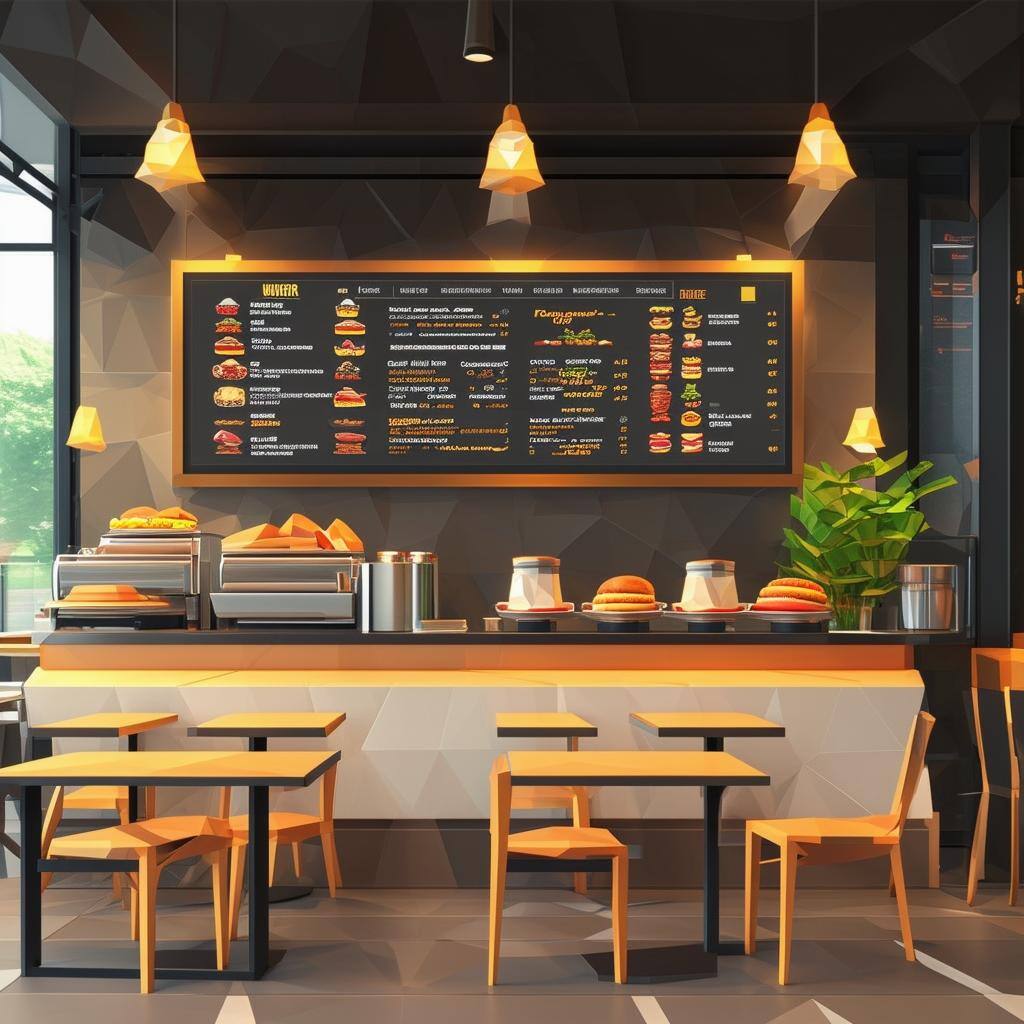Designing an effective digital menu board is crucial for enhancing customer engagement and driving sales. Here are ten best practices to consider:
1. Understand Your Audience
Tailor your menu board to your customers’ preferences and behaviors. For instance, a café in a business district might highlight quick lunch options during peak hours.
2. Use High-Contrast Colors and Legible Fonts
Ensure text is easily readable from a distance by using high-contrast color schemes and clear fonts. Avoid overly decorative fonts that may hinder readability.

3. Incorporate High-Quality Images
Utilize appetizing, high-resolution images of your menu items to entice customers. Visuals can significantly influence purchasing decisions.
4. Implement Dynamic Content
Leverage the flexibility of digital menu boards to display time-sensitive promotions, seasonal items, or limited-time offers, keeping content fresh and engaging.
5. Organize Content Logically
Arrange menu items in a clear, intuitive order, grouping similar items together to facilitate quick decision-making. Use headings and sections to guide the customer’s eye.
6. Optimize for Dayparts
Schedule content to change based on the time of day, showcasing breakfast items in the morning and dinner specials in the evening, to align with customer expectations.
7. Ensure Consistency Across Locations
Maintain brand consistency by using uniform designs and messaging across all locations, reinforcing brand identity and customer trust.
8. Test Readability and Visibility
Regularly assess your menu board’s readability from various distances and angles, ensuring all customers can easily view and understand the content.
9. Keep the Design Uncluttered
Avoid overwhelming customers with too much information. Focus on key items and promotions, and use white space effectively to create a clean, inviting look.
10. Regularly Update Content
Keep your menu board current by updating it with new items, promotions, and pricing changes, ensuring customers receive accurate and relevant information.
By implementing these best practices, you can create a digital menu board that not only informs but also engages and persuades customers, enhancing their overall experience and boosting your sales. Contact us to learn more.
